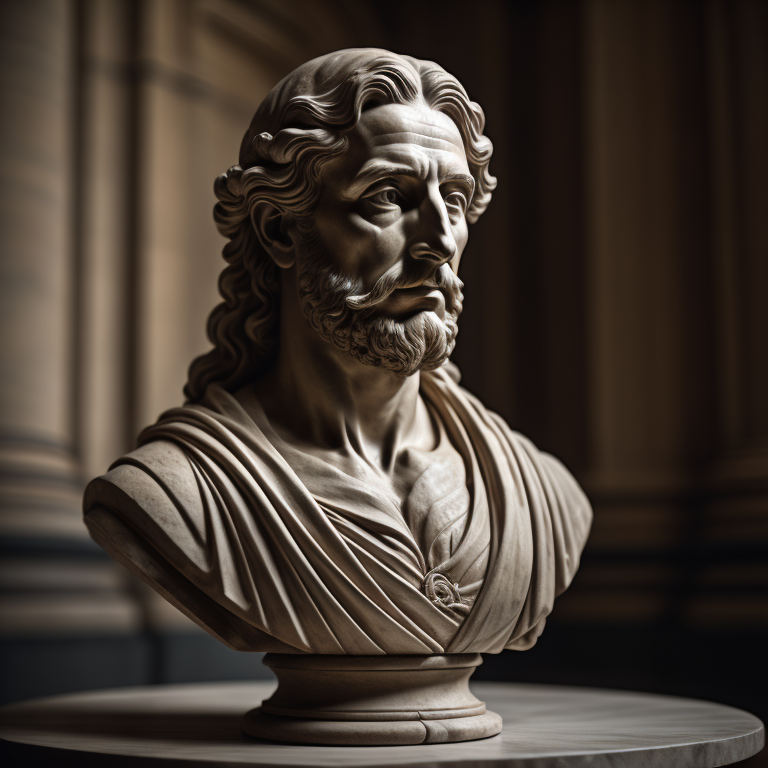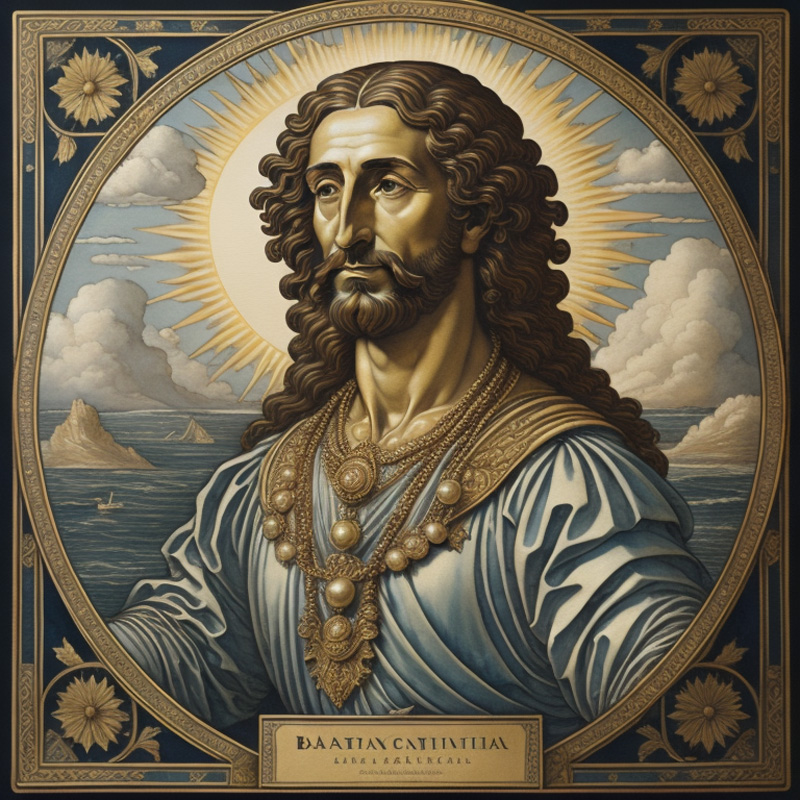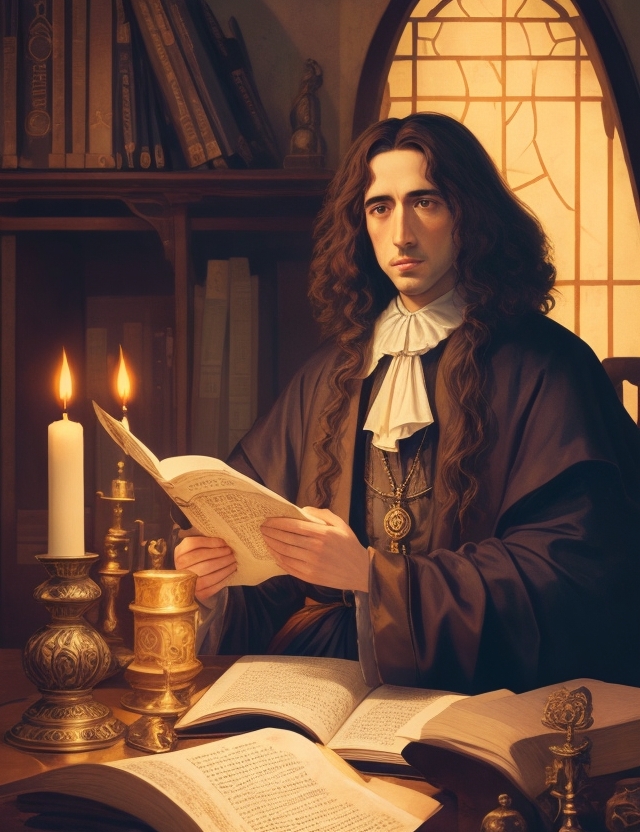
Baruch Spinoza
Baruch Spinoza: Exploring his Philosophy
Baruch Spinoza (1632-1677)
Baruch Spinoza (1632-1677) was a 17th century Dutch philosopher. He is considered one of the most important rationalist philosophers in history.
His main philosophical ideas are:
Nature is a single, infinite and eternal substance. God is nature. The soul and the body are two modes of the same substance. Freedom is the ability to act in accordance with one’s own nature. Happiness is the result of understanding of nature. Spinoza’s philosophy can be summarized in a single phrase: “God is nature.” This means that nature is an orderly and rational system, and that God is the force that makes it work.
Explanation of this philosophy for a child:
Nature is like a big puzzle. All things in nature, such as trees, animals and people, are pieces of the puzzle. God is the one who created the puzzle and keeps it in order. People are part of nature, so We are also pieces of the puzzle. When we do good things, we are helping to complete the puzzle. When we do bad things, we are messing up the puzzle.
To explain this philosophy to an adult:
Nature is a system of causes and effects. Everything that occurs in nature has a cause. God is the ultimate cause of everything that occurs in nature. The soul and the body are two modes of the same substance. This means that the soul and the body are connected and that what happens to the body also happens to the soul. Freedom is the ability to act in accordance with one’s nature. Happiness is the result of understanding nature and of accepting our place in it.
Positive aspects of Spinoza’s philosophy
Spinoza’s philosophy is rationalist. This means that he believes that reason is the source of all knowledge. This can be positive because it allows us to understand the world around us and make informed decisions.
Spinoza’s philosophy is monistic. This means that he believes that there is only one substance, which is nature. This can be positive because it gives us a holistic view of the world and helps us see that we are all connected. Spinoza’s philosophy is deterministic. This means that he believes that everything that happens in the universe has a cause. This can be positive because it frees us from guilt and allows us to accept the things we cannot change. Spinoza’s philosophy is optimistic. This means that he believes that nature is benevolent and that we all have the potential to achieve happiness. This can be positive because it gives us hope and motivates us to live a good and virtuous life.
Negative aspects of Spinoza’s philosophy
Spinoza’s philosophy can be impersonal. This means that it can be difficult for some people to connect with a nature that does not have a personal being like God. Spinoza’s philosophy can be fatalistic. This means that it may be difficult for some people to accept that they have no control over their destiny. Spinoza’s philosophy may be atheistic. This means that it can be difficult for some people to accept that there is no personal being like God who cares for them.
A real-life problem
A real-life problem that can be solved with Spinoza’s philosophy is that of suffering. Suffering is something we all experience at some point in our lives. Spinoza’s philosophy tells us that suffering is a natural part of life and that it does not have to be something negative. We can learn to accept suffering and find meaning in it. Spinoza’s philosophy tells us that suffering is caused by our desires. When our desires are not fulfilled, we experience pain. We can overcome suffering by learning to control our desires. We can do this by cultivating serenity and resignation. Serenity is the ability to accept the things we cannot change. Resignation is the ability to accept the things we do not want to happen. By cultivating serenity and resignation, we can learn to live with suffering and find meaning in it. We can see suffering as an opportunity to grow and learn. We can see suffering as a part of the process of achieving happiness.
The opposite philosophy to that of Spinoza is dualism.
Dualism is the belief that there are two fundamental substances: the mind and the body. This contrasts with Spinoza’s monism, which states that there is only one substance.
The positive aspects of dualism are that:
Allows a greater understanding of the mind and body. Offers an explanation for the interaction between the mind and body. Allows the freedom of the mind from physical determinism.
The negative aspects of dualism are that:
It is difficult to reconcile with science. It is difficult to explain how the mind and body interact. It can lead to Cartesian dualism, which is the belief that the mind and body are completely separate substances. A real-life problem that can be resolved with dualism is that of free will. Dualism asserts that the mind is a different substance from the body, and that therefore the mind can be free from physical determinism. This means that we can have the ability to make our own decisions and act independently. The solution to the problem of free will using dualism is that the mind can be free from physical determinism because it is a different substance than the body. The mind can be influenced by the body, but it is not completely determined by it. This means that we have the ability to make our own decisions and act independently. Dualism is a philosophy that has its advantages and disadvantages. It’s important to consider the pros and cons before deciding if it’s a philosophy that’s right for you.

Sources
Books:
- “Ética” por Baruch Spinoza: Esta es la obra maestra de Spinoza en la que presenta su sistema filosófico de manera profunda y detallada. Explora temas como la naturaleza de Dios, la mente y el cuerpo, la libertad y la moral.
- “Spinoza: Una vida” por Steven Nadler: Este libro ofrece una biografía completa y accesible de Spinoza, además de explorar sus principales ideas filosóficas. Proporciona una visión detallada de la vida y el pensamiento de este influyente filósofo.
- “Spinoza: Filosofía Práctica” por Gilles Deleuze: En este libro, el renombrado filósofo Gilles Deleuze analiza y presenta las ideas clave de Spinoza, explorando su enfoque de la ética, la política y la ontología.
Websites:
- https://plato.stanford.edu/entries/spinoza/https://www.encyclopedia.com/people/philosophy-and-religion/philosophy-biographies/baruch-spinozahttps://spinozaweb.org/






0 comments